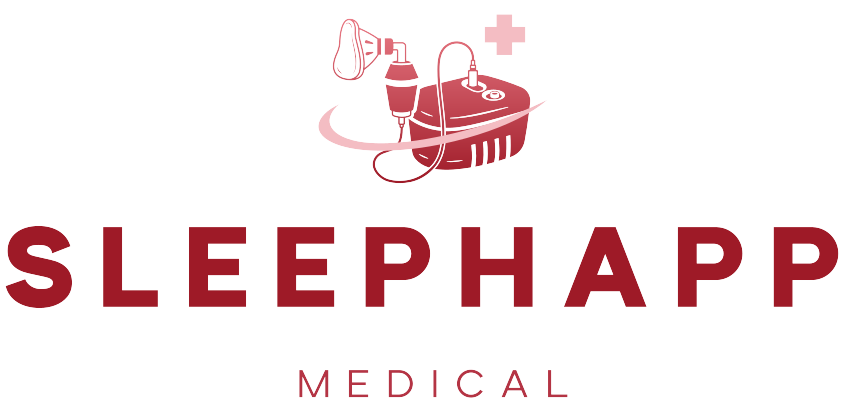Benefits of Using an APAP Machine Over Traditional CPAP Devices
Home » Benefits of Using an APAP Machine Over Traditional CPAP Devices

Table of Contents
Sleep apnea disrupts millions of lives, causing fragmented sleep and health risks. While CPAP (Continuous Positive Airway Pressure) therapy has long been the go-to solution, APAP (Auto-titrating Positive Airway Pressure) machines are emerging as a smarter, more adaptable alternative. If you’ve struggled with CPAP discomfort or inconsistent results, here’s why upgrading to an APAP machine could transform your sleep therapy—and how it boosts compliance, comfort, and long-term health.
APAP vs. CPAP: What’s the Difference?
- CPAP: Delivers a fixed pressure all night, prescribed after a sleep study.
- APAP: Auto-adjusts pressure in real-time, responding to breathing patterns, sleep stages, and airway blockages. (National Library of Medicine).
Benefits of APAP Machines Over CPAP
Dynamic Pressure Adjustment
APAP machines use advanced sensors to detect airway resistance, instantly increasing pressure during apneas and lowering it when breathing normalizes. This prevents the “one-size-fits-all” discomfort of CPAP, where fixed pressure can feel too intense or insufficient. (Sleep Foundation).
Personalized Comfort = Better Compliance
Studies show that up to 50% of CPAP users abandon therapy due to mask leaks, dry mouth, or pressure discomfort. APAP’s tailored approach reduces side effects, making nightly use easier. For example, if you roll onto your back (which worsens apnea), APAP ramps up pressure only when needed. (Mayo Clinic)
Adapts to Your Sleep Stages
During REM sleep, throat muscles relax, increasing collapse risk. APAP recognizes these changes and adjusts pressure dynamically—something CPAP can’t do. (American Thoracic Society)
Ideal for Variable or Complex Apnea
If your apnea severity fluctuates (due to weight changes, alcohol, or allergies) or you have mixed/complex sleep apnea (obstructive + central events), APAP outperforms CPAP by responding to both obstruction types. (American Journal of Respiratory and Critical Care Medicine)
Travel-Friendly Design
Modern APAP devices like the ResMed AirSense 11 AutoSet are compact, quiet, and include humidifiers. No manual adjustments are needed, making them perfect for changing altitudes or time zones.
Reduced Long-Term Side Effects
By avoiding unnecessarily high pressure, APAP minimizes aerophagia (swallowing air), nasal dryness, and morning headaches—common CPAP complaints. (Cleveland Clinic)
APAP Limitations: Is It Right for You?
- Higher Upfront Cost: APAP machines cost 20-30% more than CPAP, but many insurers now cover them due to proven compliance benefits.
- Not for Central Sleep Apnea: Pure central apnea (brain-signal issues) requires ASV therapy, not APAP/CPAP.
- Mild Apnea Cases: Some patients with consistent mild OSA may prefer CPAP’s simplicity.
Who Should Switch to APAP?
- Variable Pressure Needs: If your CPAP pressure feels too high on some nights but inadequate on others.
- Frequent Travelers: APAP’s auto-adjustment eliminates the need for retitration in new environments. (TSA Guidelines on CPAP Travel)
- Side Effect Sufferers: Struggling with CPAP-related bloating, leaks, or dryness? APAP often resolves these. (National Institutes of Health)
APAP vs. CPAP: A Quick Comparison
| Feature | APAP | CPAP |
| Pressure Delivery | Auto-adjusts (e.g., 4-20 cmH2O) | Fixed (e.g., 10 cmH2O) |
| Ideal For | Variable apnea, complex cases | Consistent mild apnea |
| Comfort | Higher (adapts to needs) | Lower (fixed pressure) |
| Travel-Friendly | Yes | Depends on model |
Conclusion:
APAP technology represents a leap forward in sleep apnea treatment, offering flexibility and comfort that CPAP can’t match. For most patients—especially those with fluctuating apnea severity or CPAP intolerance—the higher upfront cost pays off in better sleep and long-term adherence. At Sleephapp, we are committed to providing the best solutions for your sleep apnea needs, ensuring a restful and healthy night’s sleep.
Sources:
- https://www.ncbi.nlm.nih.gov/pmc/articles/PMC2699163/
- https://www.sleepfoundation.org/cpap/apap-machine
- https://www.mayoclinic.org/diseases-conditions/sleep-apnea/in-depth/cpap/art-20044164
- https://www.atsjournals.org/doi/full/10.1164/rccm.201603-0588CI
- https://health.clevelandclinic.org/apap-machine/
- https://www.tsa.gov/travel/security-screening/whatcanibring/items/continuous-positive-airway-pressure-machine
- https://www.nhlbi.nih.gov/health-topics/sleep-apnea
